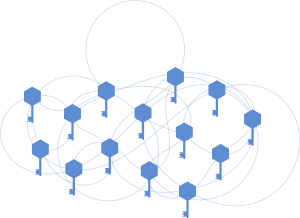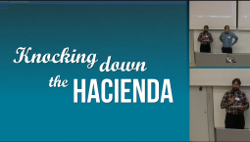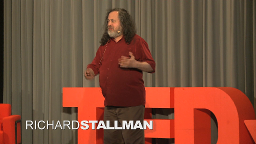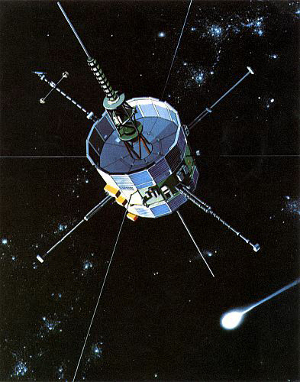|
Free software is simply software that respects our freedom — our freedom to learn and understand the software we are using. Free software is designed to free the user from restrictions put in place by proprietary software, and so using free software lets you join a global community of people who are making the political and ethical assertion of our rights to learn and to share what we learn with others.
Thursday, August 21, 2014
GNU hackers discover HACIENDA government surveillance and give us a way to fight back
Tuesday, August 19, 2014
Richard Stallman's TEDx video: "Introduction to free software and the liberation of cyberspace"
Are you in search of an easy way to explain to others what free software is and why it matters? Or are you perhaps wondering why you yourself should be concerned about computer-user freedom? If your answer is yes, then this TEDx talk by FSF president Richard Stallman (RMS) is what you're looking for!
The TEDx talks are "designed to help communities, organizations, and individuals to spark conversation and connection through local TED-like experiences." At these events, screenings of videos, like this one, "or a combination of live presenters and TED Talks videos — sparks deep conversation and connections at the local level." We hope you share the recording, to help raise awareness and inspire conversations and connections in your own circles, and introduce a friend, loved one, or acquaintance, to this "first step in the liberation of cyberspace." If you watch any TEDx talks on YouTube, please remember to use a free program like youtube-dl instead of your browser, because watching YouTube in your browser requires proprietary JavaScript. Many thanks to Théo Bondolfi, François Epars, Florence Dambricourt, and the TEDxGeneva core-team for making this speech possible. Thank you to Ynternet.org and HEG-GE for hosting and supporting the event, and to Sylvain & Co., La Belle Bleue, and Jus de Fruits Suisses, ProLibre, and the Fondation Emilie Gourd, Piguet Galland & Cie., Lifelong Learning Programme, Hes.so Genève, My Big Geneva, and Smala for their support. Sincerely, Jeanne Rasata Assistant to the President P.S. RMS does not draw a salary from the FSF, but your donations do support the coordination of events and videos like this. We'd love to produce more introductory videos. Can you donate $25 today? |
Friday, August 8, 2014
GNU Radio controls the ISEE-3 Spacecraft
The International Sun-Earth Explorer-3, or ISEE-3, was launched in 1978 by NASA to monitor activity on the sun. After three years of observation, NASA repurposed the satellite, which soon became the first spacecraft to visit a comet. The mission ended in 1999, when NASA abandoned ISEE-3 to orbit the Sun, despite the fact that twelve of the satellite's thirteen instruments were still working. In 2008, when it was discovered that the satellite was still transmitting a signal and would fly close to Earth, NASA realized that they no longer had the funding or equipment to reinitiate contact. So a volunteer group of scientists, programmers, and engineers organized the ISEE-3 Reboot Project, which was crowd-funded with over $150,000 in donations, and set out to contact the spacecraft, fire its engine, and bring it closer to Earth to resume its original mission. To do this, the group turned to GNU Radio, a free software toolkit for implementing software-defined radios and signal processing systems. Modifying the software to communicate in the 1970s satellite protocol, members of the reboot project were able to gain access to the spacecraft and fire its thrusters in early July, and will soon attempt to move the satellite into an orbit close to Earth. You can support GNU Radio by making a donation through the FSF's Working Together for Free Software Fund. To get more involved, attend the annual GNU Radio Conference, to be held this year between September 15th and 19th in Washington, D.C. The successes of the ISEE-3 Reboot project demonstrate the importance of developing, maintaining, and promoting free software. With dozens of contributors and thousands of users, GNU Radio is written to be shared, learned, and improved by anyone, anywhere -- unlike the lost proprietary communications equipment used by NASA. This is the second time we've lauded the use of free software for space exploration in the last two years. Read our 2013 blog post about the choice of GNU/Linux as the operating of the International Space Station. "This openness to inquiry, collaboration, and 'standing on the shoulders of giants' is at the heart of all science," wrote John Gilmore, a founding member of the GNU Radio project, in an email to the FSF. "The GNU Project has institutionalized those principles in a vast community of software authors and users. And GNU's legalized freedom and sharing [...] enable many people to use it and contribute to it -- such as these volunteers." Alex Patel |
Friday, August 1, 2014
Volunteers translate Email Self-Defense guide into Spanish, Romanian, and more
 When the FSF launched our guide to personal email encryption last month, it was enthusiastically received by English-speakers looking for an easy way to get started fighting bulk surveillance. Our community then came together to translate it and bring it to speakers of six more languages. Today we're launching the second round of translations: Spanish, Romanian, Italian, and Greek. This guide started as an effort of the FSF and some skilled graphic and Web designers, but it's become a worldwide effort by free software activists translating in more than ten countries. This kind of teamwork is what our movement is all about, and the FSF is thrilled to facilitate it. The Free Software Foundation provides the infrastructure and professional management for our community of translators, and rigorously researches and refines the material in Email Self-Defense. We also maintain Edward, the multilingual encryption reply bot program. We've spent a lot of time and energy on this guide so far, and we want to spend more, but we need resources. Can you donate to help us recoup some of the cost we've put into creating this guide and fostering a community around it? Your donation will also enable us to make technical infrastructure improvements to EmailSelfDefense.fsf.org to make it easy to translate into more languages, and hopefully let us add a set of instructions for using encryption on mobile devices. Our goal is to make email encryption approachable for people speaking any language and using any device, while also using the guide to deliver a clear message about the importance of free software. If you'd like to create a version for a language that we haven't published yet, or help maintain one of the existing translations, please send an email to campaigns@fsf.org telling us about your experiences with translating. We're also looking for people to join the GNU.org translation team and create translated versions of Richard Stallman's article "How Much Surveillance Can Democracy Withstand?" The article makes the point that, to fight bulk surveillance, we need to reduce the amount of data that is collected about our lives in general (both by government and private entities). Thank you for being such a supportive community, and coming forward to help us with this project. We're happy to be making it easier for you to protect your privacy and put up a defense against surveillance. Please email us at donate@fsf.org if you'd like to donate in Euros. Zak Rogoff Campaigns Manage |
UK Government chooses Open Document Format | Free Software Supporter - Issue 76, July 2014
Free Software SupporterIssue 76, July 2014Welcome to the Free Software Supporter, the Free Software Foundation's monthly news digest and action update -- being read by you and 81,589 other activists. That's 1,228 more than last month! TABLE OF CONTENTS
FSF congratulates UK Government on choosing Open Document FormatFrom July 29thIf you live in the UK, you'll soon be able to fill out government paperwork with your freedoms intact. The British government announced last week that Open Document Format (ODF), HTML, and PDF will be the official file formats used by all government agencies.
Interview with Tox.imFrom July 21stIn the latest installment of our Licensing and Compliance Lab's series on free software developers who choose GNU licenses for their works, we conducted an email-based interview with David Lohle from the Tox project, an all-in-one communication platform and protocol that ensures users full privacy and secure message delivery. Introducing Tyler Livingston, a summer Licensing Team internFrom July 21stTyler Livingston is one of the Licensing Team's summer interns. In this post he discusses the importance of free software and his personal interests. Tell the FCC: Net Neutrality is crucial to free softwareFrom July 14thNet neutrality, the principle that all traffic on the Internet should be treated equally, is crucial for free software's continued growth and success. The FCC has asked members of the public, along with industry leaders and entrepreneurs, to tell it why Internet Service Providers should be banned from traffic discrimination. Seattle free software event this fall: Call for Participation now openFrom July 1stThe Seattle GNU/Linux Conference (SeaGL), a free software conference taking place on October 24 and 25, has just announced Karen Sandler, executive director of Software Freedom Conservancy, as a keynote speaker and opened its Call for Participation. Welcome Jessica Tallon, GNU MediaGoblin's second full-time hireBy Deb Nicholson and Chris Webber, from July 28thJessica Tallon, who originally joined GNU MediaGoblin last year as part of the Outreach Program for Women, has recently been working on federation support in the project. European Commission distorts market by refusing to break free from lock-inBy FSF Europe, from July 8thThe European Commission has recently renewed its commitment to a proprietary desktop and secret file formats. The Commission is refusing to get serious about breaking free from vendor lock-in, and is ignoring all available alternatives. In doing so, the EU's civil service fails to practice what it preaches. Join the FSF and friends in updating the Free Software DirectoryFrom July 30thTens of thousands of people visit directory.fsf.org each month to discover free software. Each entry in the Directory contains a wealth of useful information, from basic category and descriptions to version control, IRC channels, documentation, and licensing. The Free Software Directory has been a great resource to software users over the past decade, but it needs your help staying up-to-date with new and exciting free software projects. To help, join our weekly IRC meetings on Fridays. Meetings take place in the #fsf channel on irc.gnu.org, and usually include a handful of regulars as well as newcomers. Everyone's welcome. The next meeting is Friday, August 1 from 2pm to 5pm EDT (18:00 to 21:00 UTC). Details here: After this meeting, you can check https://www.fsf.org/events to see the rest of August's weekly meetings as they are scheduled. LibrePlanet featured resource: Community toolkitEvery month on LibrePlanet, we highlight one resource that is interesting and useful -- often one that could use your help.For this month, we are highlighting our Community toolkit, which collects information about software that can be used by nonprofits, community groups, and individuals to advance the cause of free software. You are invited to adopt, spread and improve this important resource. Do you have a suggestion for next month's featured resource? Let us know at campaigns@fsf.org. GNU Spotlight with Karl Berry: 18 new GNU releases!18 new GNU releases in the last month (as of July 26, 2014):
This month, we welcome Mose Giordano as a new co-maintainer of AUC-TeX, James Cloos as a new co-maintainer of a2ps (following his work on GNU enscript and trueprint), and Assaf Gordon as the author and maintainer of the new package datamash. Thanks to all. Also, please consider attending the GNU Hackers' Meeting https://www.gnu.org/ghm/, in Munich this year, August 15-17; attendance is gratis, but pre-registration is essential (and needs to be done immediately). A number of GNU packages, as well as the GNU operating system as a whole, are looking for maintainers and other assistance: please see https://www.gnu.org/server/takeaction.html#unmaint if you'd like to help. The general page on how to help GNU is at https://www.gnu.org/help/help.html. To submit new packages to the GNU operating system, see https://www.gnu.org/help/evaluation.html. As always, please feel free to write to me, karl@gnu.org, with any GNUish questions or suggestions for future installments. GNU Toolchain updateFrom July 14thThe GNU toolchain refers to the part of the GNU system which is used for building programs. These components of GNU are together often on other systems and for compiling programs for other platforms. This month features updates to binutils and GCC, including a new test coverage program called gcov-tool. Richard Stallman's speaking scheduleFor event details, as well as to sign-up to be notified for future events in your area, please visit https://www.fsf.org/events.So far, Richard Stallman has the following events in July:
Other FSF and free software events
Thank GNUs!We appreciate everyone who donates to the Free Software Foundation, but we'd like to give special recognition to the folks who have donated $500 or more in the last month.This month, a big Thank GNU to:
Take action with the FSFContributions from thousands of individual members enable the FSF's work. You can contribute by joining at https://www.fsf.org/join. If you're already a member, you can help refer new members (and earn some rewards) by adding a line with your member number to your email signature like:I'm an FSF member -- Help us support software freedom! https://www.fsf.org/jf?referrer=2442 The FSF is also always looking for volunteers (https://www.fsf.org/volunteer). From rabble-rousing to hacking, from issue coordination to envelope stuffing -- there's something here for everybody to do. Also, head over to our campaign section (https://www.fsf.org/campaigns) and take action on software patents, DRM, free software adoption, OpenDocument, RIAA and more. #Copyright © 2014 Free Software Foundation, Inc.This work is licensed under the Creative Commons Attribution 3.0 Unported License. To view a copy of this license, visit https://creativecommons.org/licenses/by/3.0/. |



